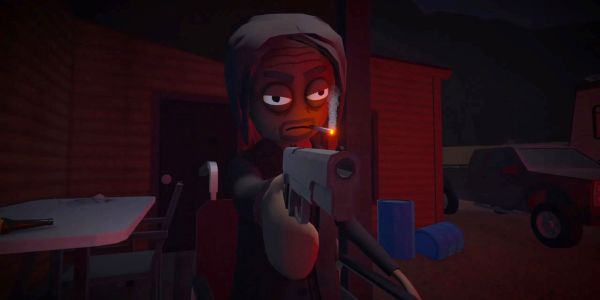
In what could be a classic case of success breeding scrutiny, the breakout indie hit Schedule 1 now faces potential legal challenges just as it’s reaching new heights on Steam. The co-op crime simulator, which launched in early access on March 25, 2025, has quickly become a sensation among PC gamers, but that rapid rise to fame has now attracted attention from an unexpected quarter.
Movie Games S.A., the studio behind the established Drug Dealer Simulator series, has completed a preliminary legal analysis suggesting that Schedule 1 may have crossed the line from inspiration to infringement.
According to a statement reported by the Polish Press Agency, the investigation concluded that Australian developer TVGS may have borrowed too heavily from Drug Dealer Simulator‘s intellectual property.
The timing couldn’t be more dramatic for Schedule 1which has enjoyed a meteoric rise since its debut. The game took just 48 hours to surpass 130,000 concurrent players and achieve Steam’s coveted “Overwhelmingly Positive” rating. Even more impressively, the game has reportedly sold nearly 3 million copies as of April 3, with player counts that surpass even established AAA titles like The Witcher 3.
“We’ve conducted an initial investigation into similarities between Schedule 1 and our Drug Dealer Simulator franchise,” a representative from Movie Games S.A. told gaming news outlets. “Our analysis found concerning parallels in plot elements, game mechanics, and user interface design that warrant further examination.”
The Polish studio hasn’t filed any formal charges yet but plans to deepen its investigation. This includes consulting legal experts familiar with Australian copyright law, where TVGS is based. Movie Games S.A. appears to be proceeding carefully before taking any definitive legal action.
Meanwhile, Schedule 1 continues its successful run seemingly unaffected, with TVGS rolling out a new April 2025 update that introduces an additional game version alongside various bug fixes. The developers have not yet issued a public response to the copyright allegations.
Industry observers note that copyright cases in gaming often tread murky waters. Games within the same genre naturally share certain elements, making it difficult to distinguish between unlawful copying and legitimate genre conventions. Criminal management simulators, in particular, tend to feature similar mechanics by necessity.
“There’s a thin line between infringement and inspiration in video game development,” said non-partisan digital entertainment attorney Maya Rodriguez. “Courts will look for substantial similarity of expression of ideas and not ideas themselves.
Two games can be drug-dealing games without infringing on copyright, but when some implementations are adopted, such as new UI design or some narrative elements, that’s where you begin having issues with the law.”
The video game industry has had its own fair share of copyright battles over the years, with wins and losses. The Pokémon Company recently emerged victorious against Pocket Monster: Remake, but others have been dismissed when coincidences were established or fell under the umbrella of fair use.
For enthusiasts of Schedule 1, the inquiry questions the future of the game. If Movie Games S.A. chooses to litigate, it may have the potential to upset the development plan of the game or even lead to necessary changes to game features considered infringing.
“At this point, it’s too soon to say how this will go down,” Rodriguez continued. “The majority of these cases get worked out behind the scenes through licensing agreements or design changes instead of proceeding to full-scale litigation.”
The case is used to highlight the subtle challenges facing independent developers who try to enter well-known game genres. Creating something original while working within known genre paradigms is a delicate tightrope to walk—especially when facing well-established IPs that have already staked ground on certain mechanics or presentation styles.
For now, Schedule 1 continues to add up the figures on Steam, with players seeming oblivious or unconcerned about the brewing legal problems. Whether or not this copyright question will ultimately impact the game’s phenomenal success story remains to be seen.